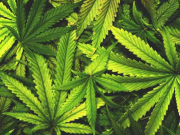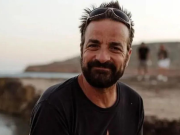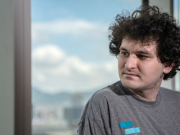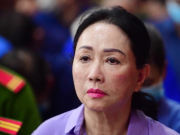Stretched rescue crews labored through the night in Turkey and Syria looking for signs of life in the rubble of thousands of buildings that had been destroyed by a devastating earthquake as hope for finding survivors was diminishing. In the deadliest earthquake to strike the planet in more than ten years, more than 15,000 people died.
President Recep Tayyip Erdogan visited a “tent city” in Kahramanmaras, where people who had to leave their homes are residing, amid appeals for the Turkish government to deliver additional aid to the disaster area. Early in the statement, he acknowledged shortcomings but promised that nobody would “be abandoned in the streets.”
Tens of thousands of local emergency personnel have joined search teams from more than two dozen other nations.
, and donations of aid from all across the world have flooded in. However, many people are still in need of assistance due to the 7.8 magnitude earthquake’s extensive damage that extended to remote areas of Syria due to the ongoing civil war.
According to journalist Ozel Pikal, who witnessed eight bodies being removed from a building’s wreckage in the Turkish city of Malatya, the remains were placed side by side on the ground and wrapped in blankets while rescuers waited for funeral cars to pick them up.
As temperatures dropped to minus 6 degrees Celsius, Pikal, who assisted with the rescue efforts, said he thinks at least some of the victims may have frozen to death (21 Fahrenheit).
“There is no hope left in Malatya as of today, thus today is not a good day,” “No one is emerging from the wreckage alive.”
According to Pikal, a hotel structure in the city has fallen, and more than a hundred people may be trapped within.
He claimed that there was a lack of rescuers in the region he was in and that government teams and volunteer rescuers were both hindered by the cold in their attempts. Mobility and access have also been hampered in the area by road closures and damage.
The cold prevents our hands from picking up anything, stated Pikal. “Working tools are required.”
The extent of the suffering was shocking in a region already affected by a civil conflict in Syria that has lasted more than ten years and forced millions of people to flee their homes and seek safety in Turkey. It was unclear how many people might still be trapped beneath the wreckage after hundreds of buildings collapsed.
The disaster management organization in Turkey reported that 8,500 people had died there. According to the Syrian Health Ministry, over 1,200 people have perished in government-held areas, while the White Helmets, a group of volunteer first responders, estimate at least 1,400 fatalities in the northwest, which is controlled by rebels.
Since the earthquake and several powerful aftershocks on Monday, there have been 15,000 total casualties. There are tens of thousands more injuries.
Nearly 20,000 people perished in a tsunami caused by an earthquake that occurred in 2011 close to Japan. Pope Francis requested prayers and acts of solidarity after the “devastating” earthquake during his weekly general audience, but neither Turkey nor Syria gave figures for the number of persons still missing.
According to Syrian officials, the Bab al-Hawa border crossing was used to return the bodies of more than 100 Syrians who perished during the earthquake in Turkey for burial. Twenty more bodies were on their way to the border, according to Mazen Alloush, an officer on the Syrian side of the border, who also noted that they were all Syrian refugees who had left their country’s civil war.
Polish rescuers working in Turkey said they had so far pulled nine people alive from the rubble, including parents with two children and a 13-year-old girl from the ruins in the city of Besni. However, concerns are growing for those still trapped.
They agreed that the cold weather was working against them, but two firefighters told Polish TVN24 that some may have benefited from being trapped in bed with warm covers during the early-morning earthquake. Currently, the rescuers are attempting to approach a woman who they are aware is lying in bed.
Arif Kaan, 3, was rescued from beneath the debris of a collapsed apartment building in Kahramanmaras, which is not far from the epicenter, nearly two days after the earthquake.
Emergency personnel covered the boy’s torso with a blanket as they gently hacked the rubble away from him, cautious of the potential of causing another collapse, with the boy’s lower body stuck beneath slabs of concrete and twisted rebar.
Ertugrul Kisi, the boy’s father, who had previously himself been rescued, sobbed as his son was freed and loaded into an ambulance.
As the dramatic rescue was carried around the nation, a Turkish television reporter exclaimed, “For now, the name of hope in Kahramanmaras is Arif Kaan.”
Residents of a community in northwest Syria discovered a wailing infant on Monday with her dead mother’s umbilical chord still attached.
In the little hamlet of Jinderis, the newborn was the only member of her family to escape a building collapse.
The pre-dawn earthquake on Monday, however, which struck a vast area, toppled thousands of structures, and complicated rescue efforts with icy temperatures and continued tremors, produced few such stories more than two days later.
In Turkey, many survivors were forced to spend the night in their cars, outside, or in public shelters.
“We lack everything—a tent, a heating source, and other essentials. Our kids are in terrible shape. Aysan Kurt, 27, told the AP, “We are all getting drenched in the rain, and our kids are outside in the cold. “We won’t die from the cold; we didn’t die from hunger or the earthquake.”
Aid attempts in Syria have been hindered by the ongoing conflict and the segregation of the rebel-held border region, which is encircled by government forces backed by Russia. As a result of Western sanctions related to the conflict, Syria itself has become a global pariah.
Major fault lines run through the area, which frequently experiences earthquakes. Similarly strong earthquakes that struck northwest Turkey in 1999 claimed over 18,000 lives.
















